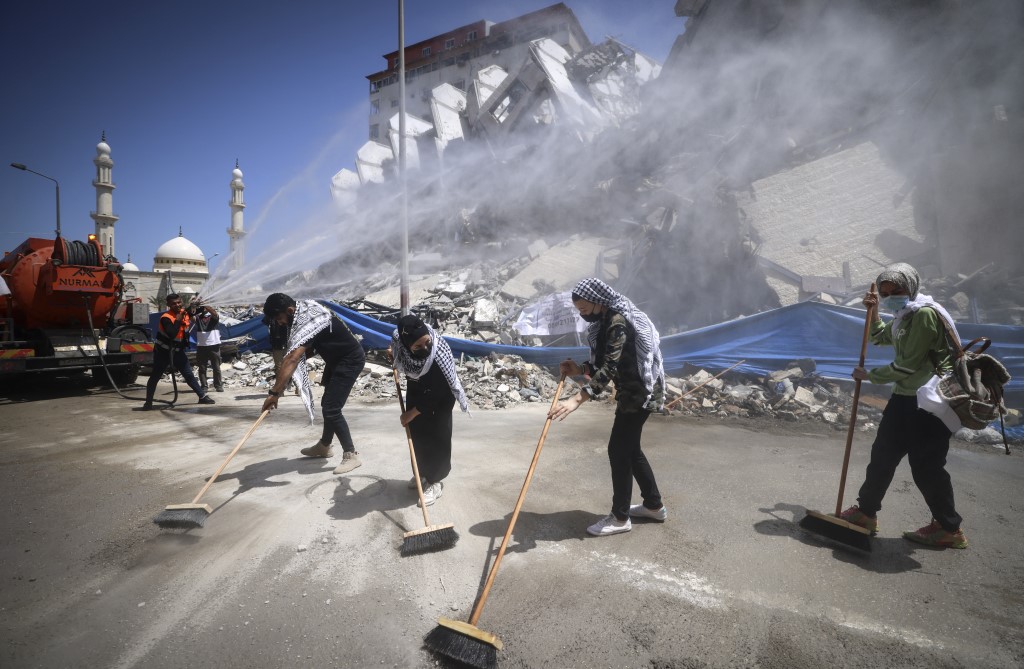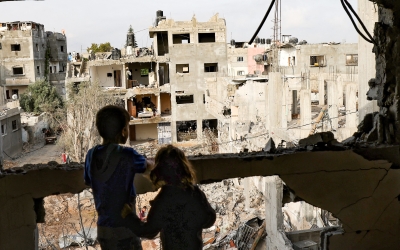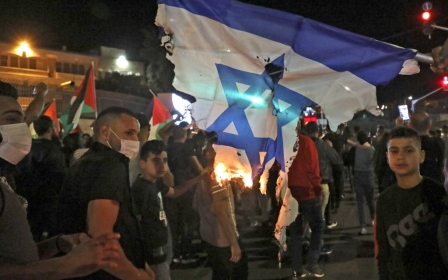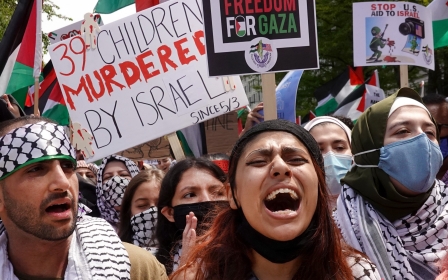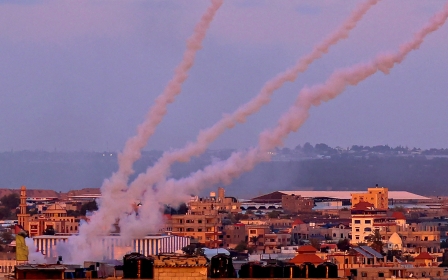Israel-Palestine: One-state solution is the path forward
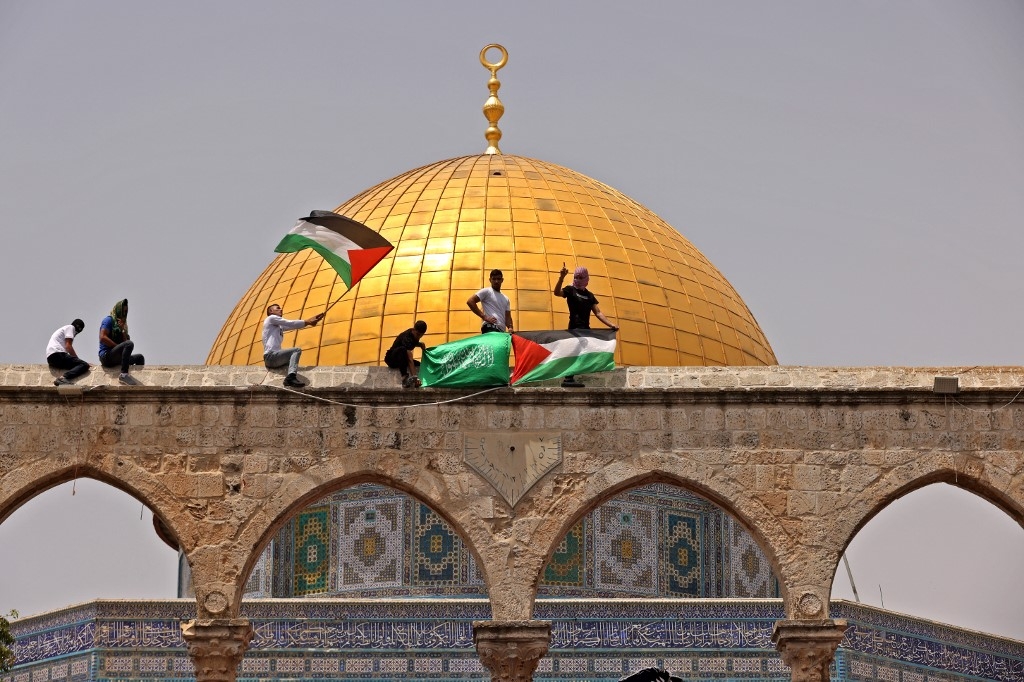
The Gaza ceasefire had barely come into effect before Israeli forces had again stormed al-Aqsa Mosque in Jerusalem, a familiar cycle that has gone on for decades. The only thing that may end these incessant infractions would be a decision by Israeli leaders to genuinely protect those under their care, rather than to work towards an impossible Zionist dream. They need to understand that enough is enough.
With each onslaught, the false narrative of righteous self-defence is laid ever barer. If Israel's right-wing extremists don't come to realise that Palestinians are not a subservient people, nor will they disappear amid colonisation, then the country will continue to exist in a cycle of instability, apprehension and social discord.
While maintaining this level of resistance is exhausting, the alternative - simply accepting Israeli hegemony - is not an option
Palestinians in the occupied West Bank and the besieged Gaza Strip have demonstrated for more than seven decades that they will not capitulate, and those evicted or expelled from the country will not give up on their right of return.
They do not need foreign armies to bolster their resolve. While maintaining this level of resistance is exhausting, the alternative - simply accepting Israeli hegemony - is not an option. Palestinians have predominantly chosen a path of death or liberty.
Lest we forget what caused the latest escalation, it was a dual-pronged assault on Palestinian existence: Israeli forces raided al-Aqsa Mosque after denying worshippers their religious rites for weeks, and protected settlers who have been forcibly evicting Palestinians from their homes in Sheikh Jarrah. The Hamas rockets fired towards Tel Aviv came only after the Israelis were given ample opportunity to withdraw from the mosque.
New MEE newsletter: Jerusalem Dispatch
Sign up to get the latest insights and analysis on Israel-Palestine, alongside Turkey Unpacked and other MEE newsletters
Disproportionate suffering
Israel's latest assault on Gaza, branded as "Operation Guardian of the Walls," reflects the state's attempt to once again paint itself as an innocent. Since 2002, Israel has branded its military campaigns with a slew of schizophrenic names: Defensive Shield, Summer Rains, Hot Winter, Cast Lead, Pillar of Defence and Protective Edge.
Notwithstanding the bizarre nomenclature, the casualty count has consistently been lopsided. And even before these onslaughts, Israel has a decades-long history of colonialism, military aggression and financial strangulation.
In the latest onslaught, more than 200 Palestinians were killed and hundreds more injured. But Palestinians know that such numbers matter little to Israeli officials, except as tools for the likes of "Justice" Minister Benny Gantz, who wears them with pride. In 2019, Gantz ran a campaign ad that boasted of killing 1,364 "terrorists" in the 2014 Gaza war.
As Palestinians this month commemorate the 73rd anniversary of the Nakba, we can draw parallels to Deir Yassin and other massacres remembered now only by those willing to dirty their fingers by flipping through the pages of history. Journalists did not write accounts revealing Zionist complicity back then, and most are not risking their careers by doing so now.
Western media channels meekly profess objective journalism by quoting or interviewing both sides in the "conflict," seemingly oblivious to the fact that Palestinians are disproportionately suffering amid severe Israeli repression.
Potential solutions
In the latest indiscriminate assault on Gaza, which is among the most densely populated places on earth, Israeli bombs destroyed residential apartment buildings, media offices, healthcare facilities, roads and other key infrastructure. Among the dead were more than 60 children, and thousands more people have been displaced.
Now that the drones and sirens have been silenced, there will be more discussion around potential solutions. The two-state option is frankly no longer viable. As Haaretz columnist Gideon Levy once aptly noted, no Israeli government, regardless of political party, has ever had the slightest intention of implementing a two-state solution or ending the occupation, with the Oslo Accords functioning as yet another delaying tactic.
A single binational state where everyone is treated as an equal, however, is entirely feasible, and such a shift would surely be welcomed by the people of Gaza, the occupied West Bank and Jerusalem. Moving in this direction will be difficult, requiring leaders with vision and determination, but if the oppressive Soviet Union could be dissolved, and if apartheid South Africa could be unified, then Israel-Palestine can certainly be set on a new path.
Is this proposition outlandish, with little real hope of materialising? Perhaps, but then again, in the age of citizen journalism, with social media revealing events as they unfold; and with an ever-increasing number of young Israelis realising they have been lied to, Israeli society may yet force the country's leaders to work for peace, rather than to instigate war.
The views expressed in this article belong to the author and do not necessarily reflect the editorial policy of Middle East Eye.
Middle East Eye delivers independent and unrivalled coverage and analysis of the Middle East, North Africa and beyond. To learn more about republishing this content and the associated fees, please fill out this form. More about MEE can be found here.



